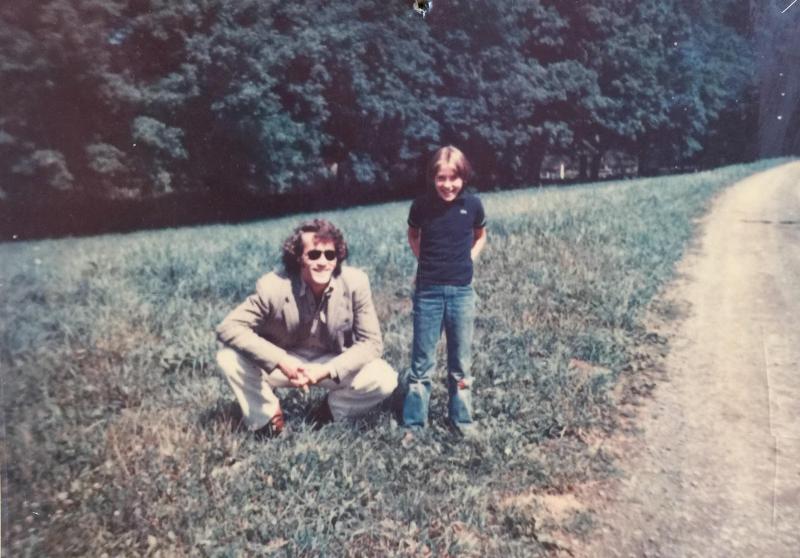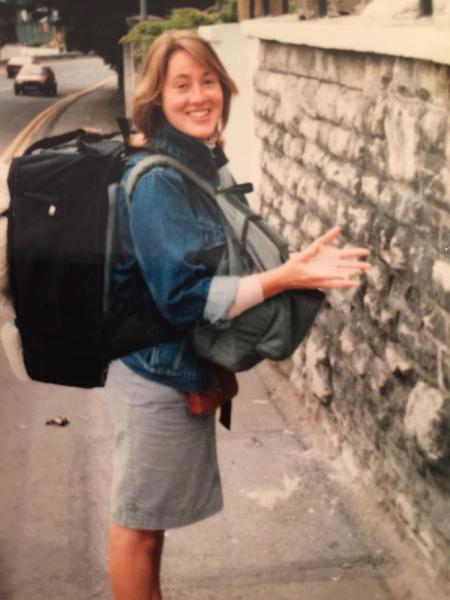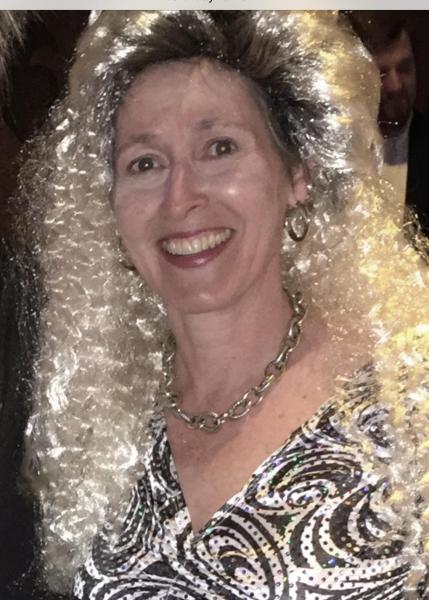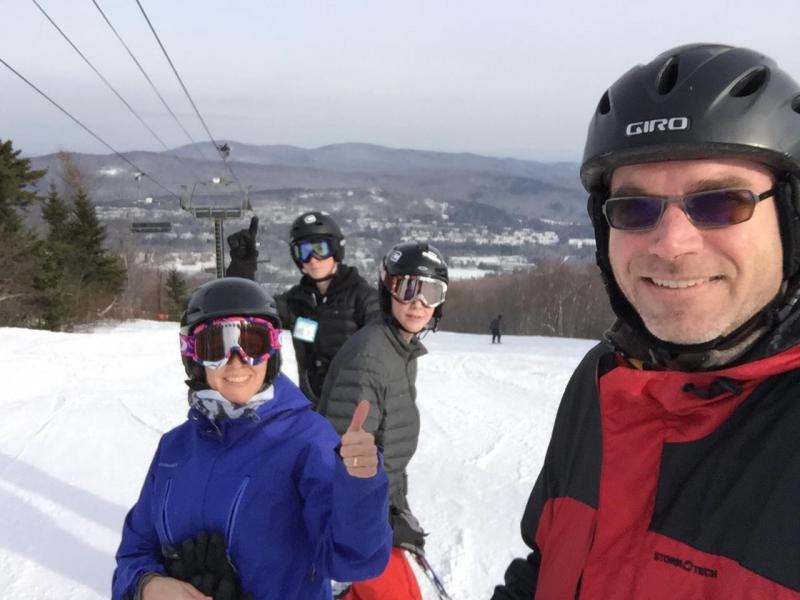Maia Heymann is a Senior Managing Director at Converge Venture Partners, a seed and early stage fund based in Boston. She has been investing in and financing tech companies for over 20 years. Her impact goes well beyond her investment portfolio, as she's on the Board of Directors for the New England Venture Capital Assocation and a very active member and supporter of the Boston tech community.
Tell us about your background.
I grew-up in New Jersey on a small dairy goat farm 80 minutes from NYC. I was the youngest of six with four older brothers, so early on I learned to speak up, eat fast, and stick up for myself. Hearing one brother shout at me from behind, “Joe Willie on the 50 yard line” meant run like hell to get away or be sacked.
The farm work sucked (yes, I see the value now) and as soon as I could get a paid job, I did. I worked at a corporate law firm during summers and part-time during high school, thinking I wanted to be a lawyer. The firm did a lot of M&A work and that’s where I got an introduction to business. It sure wasn’t from my parents. My dad was a research chemist and my mother a biologist and a farmer trying to raise six kids on organic food. In an era of “better living through chemicals, we were a bit of a freak show!

Maia and her oldest brother on ther family's New Jersey farm.
Wellesley College was the last place I was going to choose. My mother and grandmother went there and I was going to find my own college, thank you. But when I visited, it really clicked for me. I could be me - serious and ambitious - and not judged but encouraged. I didn’t have to worry about, “What will the boys think of me?” And then there’s a story about some beer and everyone still making their morning 7:30 a.m. classes. That clinched it for me.
My liberal arts education taught me how to learn, process across a variety of subjects, find data, analyze, and think critically and creatively. I majored in American Studies, concentrating in economics, history, and sociology. During my junior year, I went to the University of Sussex in England hunting for different perspectives by getting outside of the U.S.
I backpacked around 16 countries between the academic terms. I had amazing conversations with strangers and learned the importance of being open. I try to approach investing this way: by being open (because prejudging may mean I’ll miss something big), checking my assumptions, and being aware of my unconscious biases.

Maia backpacking in Europe, around 1987/1988
How’d you get involved in the tech sector within investment banking and the journey into venture capital at BancBoston Ventures?
Bank of Boston (acquired by Bank of America) was a leading corporate bank with specialized finance groups, like transportation, energy and utilities, media and entertainment, and technology. The technology group had an office in Palo Alto and when I finished the loan officer Program, I lobbied to get the offer to move there. It was 1992 and I knew I wanted to go to Silicon Valley.
We banked so many great companies and underwriting credit to them is how I learned the tech industry. I went to every tech event I could: Churchill Club talks, the AeA, the Four Horsemen’s tech conferences. We banked Sun, Oracle, Informix, National, Bay Networks, Seagate, Western Digital, Read-Rite, KLA-Tencor, Ask, Octel, Zilog, and even Apple. Some names few will remember - that’s tech. Competition is brutal, leap-frogs you, so don’t miss your window to exit or raise capital.
We were known as the bank who understood tech and we began underwriting debt for tech buyouts. We did deals with Summit, TA, Welsh Carson, and TPG. As part of those transactions, we often bought some equity alongside the sponsor, and that’s how I got on the radar for BancBoston Ventures. After Bank of Boston bought Robertson Stephens, I moved to the investment bank and then, in 1998, got the opportunity to open the Palo Alto office for BancBoston Ventures.
It was very Dickensian - the best of times and worst of times. I had four investments IPO within ~18 months (OnDisplay, Docent, Preview Systems, and Versata), and I had another four prepping for an IPO. And then the cracks began to appear.
Growth hides a lot of sins. A fast-growing company is rarely as good at it seems. Too much attention is focused on the growth and too little on “boring” infrastructure and processes. I remember cautioning to spend less, cut costs, “winter is coming,” and hearing a lot of shit from fellow VC board members who scoffed at me because I was “thinking like a banker.” I learned so much.
After the tech-wreck and after 9/11 it was dark days, working with companies through very tough times. Eventually, I moved back to Boston, made it to Partner, and I was the team leader for all of BBV’s software investments. I can’t emphasize how much I learned during this time.
Do you have any interesting / fun stories to share from the web 1.0 bubble years?
Yes, it’s when I knew we were in trouble. It was one of those, “Did I really just hear that?” moments.
An entrepreneur was pitching me to raise another round of financing and he had just closed on a $20M round. When I asked why he was raising more money, he said, “My VCs told me we can’t spend money fast enough.”
That’s probably not what they said. But that’s what he heard.
How has venture capital changed or evolved over the years from your days at BancBoston Ventures to today at Converge Venture Partners?
The availability and flow of information (regarding terms, valuations, reputations of VCs) for entrepreneurs is so different and it’s such a powerful thing. Entrepreneurs can do their homework and have an easier time sussing-out who is a good fit for them. Investors and VCs have to compete in new ways, and that’s great for entrepreneurs.
One of the changes we’re most proud of in transforming CommonAngels into Converge Venture Partners is putting the entrepreneur at the center of our process and seeing them as our customer. Entrepreneurs build the enterprise value. They generate the return on our investment.
You’ve been an investor in the Boston tech scene for a while. How has the ecosystem evolved since then?
The Boston tech scene has found its mojo and it’s super exciting to see.
There is a collective will from the current generation of tech execs, repeat entrepreneurs, and VCs to make it happen here. When I came back to Boston from Palo Alto in 2002, there was cloud of cynicism. Granted, the bubble had burst, full-ratchets, re-caps, lay-offs, and wind-downs made for dark days.
But what was not happening here - which I did see on the West coast - was the then generation of VCs with the personal wealth investing personally in the next generation of tech companies if the companies didn’t fit their firm’s investment scope. This is so different now and it’s the whole community of angels, entrepreneurs, tech execs, seed funds, and VCs investing. I think enough people got pissed off and then rallied. I know that’s my story at least. I felt that I could make a little bit of a difference to the tech ecosystem here.
And, we’re learning to have FUN and to celebrate our successes! Whether BostInno, BBJ, the NEVY’s, TUGG’s party, BIG, Mass Innovation Nights, Thursday nights at Venture Café, TechStars demo days, Mass Challenge events, now HubWeek (and I know I’m missing a ton), there is so much to do.

Maia at the 2015 Solid Gold NEVYs - she's always game for a party!
What stage of investments do you primarily target?
We’re early stage investors at Converge. In general, the founding team has built product and has a few early customers. Our capital is funding the go-to-market phase to find repeatable, scalable marketing and sales processes. Of course, there are exceptions. For instance, SmartVid.io was still building product when we lead their $3M round. And Help Scout and Harmonix were in rapid scaling mode when we pursued them.
What are the top traits you look for in terms of investing into a company or founder?
Team. We’re looking for exceptional knowledge and expertise about the sector, the customer, user behavior, etc. which make the founder(s) extraordinarily qualified to win in the market.
What sectors of technology, industries, or trends are of interest to you?
Software and technology are applied across every industry, and we invest in consumer, SMB, and enterprise applications, as well as capital-efficient technology infrastructure. Recent investments include SocialRank, Talla, and Chainalysis - and kudos to Converge’s Ash Egan for unearthing a few of these.
What is the current fund that you are investing from?
We’re currently investing out of Converge Venture Partners Fund I. We’ve called just under 40 percent of the capital. We stage the capital investments into our companies and do follow-on investing, so getting pro rata investment rights are an important part of a deal structure for us.
You’re a very active investor in Boston companies like Fiksu, Help Scout, ownCloud, Peach Underneath, and Promoboxx - to name a few. What excites you about the current market in Boston?
We breed or attract fabulous entrepreneurs here. Entrepreneurs who understand that building great companies is about building great organizations and it’s not all about the “rock star” CEO. Some of these are my personal investments, and some of them are in our funds. (To avoid any conflict, I’m not doing any personal investing if it’s within our fund’s investment scope.) Each one of these investments has an exceptional founder going after a big market with a unique or differentiated distribution approach.
Greatest misses - what company(ies) have you passed on that you wish you hadn’t?
When I was in Palo Alto, we had the chance to invest in what became PayPal. It was called Confinity then and it was a Palm Pilot payments company. We didn’t see how it could evolve. I should have paid more attention to the team and backed them. Exceptional teams figure it out.
What type of music do you like? What was the last concert that you went to?
The last concert I went to was Rival Sons. I love this band. Have a listen here and here!
Are you involved in any nonprofit or charitable organizations (a la NEVCA)?
I am on the Board of the New England Venture Capital Association, whose mission is to make our region a magnet for innovation start-ups and scale-ups. One of the ways we’re executing the mission is to minimize the corrosive effects of non-competes. It’s insane that Mass. laws still allow companies to use non-competes to prevent employees from working in their field of expertise. Confidentiality agreements protect a company’s proprietary information.
I’d also like to see our region tout our successes more. We’re good at talking among ourselves, but not so good at being part of the national and worldwide dialog. That’s changing and it’s great to see us “get our megaphone on” so that the wonderful successes that are happening here in Boston are known to the world.
Personal: I’m married with two sons, ages 12 and 14. I strive for more work-family balance, but fail miserably, and my husband and kids tolerate my work schedule.

Maia and her family skiing at Mt. Snow, Vermont.
Keith Cline is the founder of VentureFizz. Follow him on Twitter: @kcline6.

![[Investor Q&A] Maia Heymann of Converge Venture Partners: Making a Difference banner image](https://venturefizz.com/sites/default/files/maia_heymann_masthead.png)